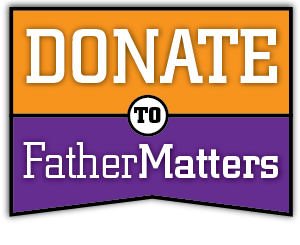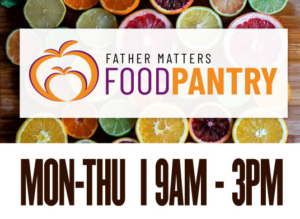Thanksgiving advice in the time of Covid
Anthony Fauci refuses to be cast in the role of the Grinch who stole Thanksgiving.
But the 79-year-old director of the National Institute of Allergy and Infectious Diseases has let it be known, with a sigh, that his three daughters, who are spread around the country, aren’t coming home for the holiday this year.
Fauci has emerged as the leading voice urging Americans to take precautions to curb spread of Covid-19 over Thanksgiving, giving countless interviews and appearing on too many TV shows and podcasts to mention espousing the need to wear masks and practice social distancing. But even he won’t go so far as to tell people not to gather with family for America’s favorite holiday.
“I think people are going to have to evaluate the level of risk that they want to take, particularly in families in which you have grandpa and grandma and elderly individuals who are going to be vulnerable,” he told STAT during an interview earlier this week. “I’m not making any recommendation about what people should or should not do. The only thing I’m saying, it’s not going to be an easy decision.”
While Thanksgiving is still two weeks away, people hoping to connect with distant family members are already making anxious plans — and if they aren’t, they should be, public health experts say.
The most stress-filled travel holiday of the year has taken on whole new dimensions with the emergence of the Covid-19 pandemic. How do you safely get from point A to point B? Does the state you’re traveling to require you to quarantine for two weeks on arrival? Does your home state expect you to quarantine for two weeks on your return? How many generations of family can one safely invite?
And what to do about Uncle Frank, who dismisses the disease as a “scamdemic” and won’t wear a mask?
The last question drew no hesitation from the multiple public health experts STAT interviewed for this article. If you are going to get together with family or friends for Thanksgiving in the time of Covid-19, they said, the gathering should be small and made up only of people who share your philosophy about taking precautions to avoid contracting the virus that causes it, SARS-CoV-2.
“Probably not the best person to bubble with,” Saskia Popescu, an infectious disease specialist and assistant professor in George Mason University’s biodefense program, said of Uncle Frank.
Another expert, Michael Osterholm of the University of Minnesota’s Center for Infectious Diseases Research and Policy, went where Fauci refused to go.
People should not be gathering for Thanksgiving with people outside of their immediate households, Osterholm said.
“We have far too many examples where adult children with grandchildren came home for events over the course of the recent months when seven or eight days later, it’s clear there’s been SARS-CoV-2 transmission,” he said. “And unfortunately, these events far too often end up with one of the people more at risk for severe disease dying. Grandma, mom or dad, aunts or uncles.”
“It’s happened with weddings. It’s happened with funerals. It’s happened with family reunions. And the holiday season is probably going to be the height of it, because it’s a tradition that almost sacred,” Osterholm said.
People who are infected but haven’t yet developed symptoms won’t know, he said. But people who have contracted the virus can infect others in the day or two before their symptoms kick in. By the time you know you’re sick, you may have already infected those around you.
That’s what happened to Tony Green, a Texas pandemic denier who told the Washington Post recently about a small family gathering that spread Covid throughout his family and the family of his partner, killing his partner’s father and grandmother.
Most of the experts STAT spoke with view Thanksgiving gatherings as inevitable, and want to ensure people have the information they need to make the get-togethers as safe as possible. Some even see them as important boosts for battered psyches in a year that has tested humanity.
“I can only speak for myself in saying that I am so tired and feeling very deprived of human connection in many ways,” said Crystal Watson, an epidemiologist at the Johns Hopkins Bloomberg School of Public Health. “And so I understand and I’m feeling the need to see friends and family.”
Her own parents are in Colorado; they haven’t seen her or her 21-month-old son since the pandemic started. But her in-laws live two states away. Both families have been ultra-cautious and plan to merge their bubbles over Thanksgiving.
“I think it’s a reasonable thing to do if you take precautions, but it is not going to be worth it if those precautions are not taken, and we ultimately expose especially our older relatives,” Watson said.
Popescu is sympathetic to the urge.
“I think it’s tough because, you know, we’re 10 months into this, really,” she said. “There’s a mental health aspect that I think is important not to ignore, you know? And there’s also a safety aspect. So how do we kind of teeter along both of those lines without sacrificing one for the other?” she asked.
U.S. PIRG, the federation of public interest research groups, has been working on a program called Home Safe for the Holidays. The idea, said Matthew Wellington, director of public health programs, is to give people tools with which to plan and execute family visits over the holidays.
“This is a big discussion for a lot of families right now,” said Wellington. “So we wanted to tap into that and help people understand what it would take to make that happen.”
A key to allowing people to safely travel for the holiday to be with family is to get testing in the country to levels where it ought to be, he said. The organization advocates targets set out by Brown University’s School of Public Health.
Wellington suggested people who want to travel should be haranguing officials in their states to meet the testing targets, starting now. But testing alone isn’t the answer, he acknowledged.
“I mean, we saw from the White House outbreak that testing is not an excuse to not practicing other preventative measures and so there’s a lot of things people need to think about,” he said.
Those include quarantining, mask-wearing, figuring out the least risky way to get to your destination and limiting the number of people involved.
“And if there’s someone who is at more risk of severe disease from Covid, then they should consider just gathering virtually rather than getting together physically,” Wellington said.
Syra Madad, senior director of the system-wide special pathogens program for NYC Health + Hospitals, is working on the Home Safe program with U.S. PIRG. Ideally, she said, people would avoid contact with people outside their direct households this holiday season. But she and others know the reality — “many people are going to do it anyway.”
Madad suggested people do some homework now. Find out the travel rules for your destination. Plan outdoor events, if the weather allows. Wear masks as much as possible.
Shorter trips will likely be easier than longer ones. Driving may be safer than flying, though more because of behavior in airports than on airplanes.
Popescu noted she’s flown a few times recently and was dismayed to see people eschewing eating in airport restaurants, only to crowd into departure lounges to eat take-out food.
The holiday is coming at a time when the daily numbers of new cases are creeping up in many parts of the country. On Thursday, 62,000 new cases were diagnosed — the highest daily number since July.
“We have between 40,000 and 50,000 baseline infections. And just as we’re ready to go into the cold weather, we’re seeing upticks in almost every part of the country,” Fauci warned, adding that certain states in the Midwest, Northwest, and even the Sunbelt are seeing record case counts.
“Things are not going in the right direction, particularly at this time of the year,” he said.
If cases surge to new heights after Thanksgiving, that may put Christmas and other December holiday gatherings in peril, said Madad, who has been urging people to plan “one holiday at a time.”
“We know obviously with Covid-19, you have that incubation period. You have a lag of a certain duration until you actually start seeing an uptick in cases and then resulting in hospitalizations and even deaths,” she said. “So I think Thanksgiving is going to certainly set us up for what we’re going to face during Christmas.”
Helen Branswell




